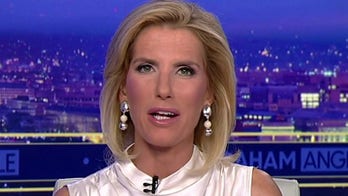Nellie Bowles, a former New York Times reporter, shares her experiences within the progressive "movement" and how its extremism led her to question her own beliefs and ultimately break away. In her new book, "Morning After the Revolution," she documents the dangers of cancel culture and the importance of intellectual diversity.

Nellie Bowles, once a staunch progressive and a proud member of the so-called "movement," has witnessed firsthand the destructive consequences of cancel culture. In her new book, "Morning After the Revolution," she documents how the leftist ideology that has gained momentum in recent years has not lived up to its promises, particularly within the hallowed halls of The New York Times, where she worked as a reporter.
Bowles' journey of disillusionment began during the fallout of the infamous Sen. Tom Cotton op-ed in 2020. The op-ed, which argued in favor of deploying the military to quell the George Floyd riots, sparked an unprecedented outcry among Times staffers. Bowles remembers the pressure to conform and post a predetermined tweet that condemned the op-ed, a moment that proved to be a turning point for her.

"I wasn't going to tweet the tweet we all had to tweet that day... because once people saw that I wasn't going to tweet the tweet, that to them was picking a side," she said in an interview with Fox News Digital. "And we all had to raise our voices together and try to get the editors fired... We all had to shout together to get everyone who touched that thing fired. And I just wasn't willing to do that."
Bowles also recounts the unjust ousting of veteran Times reporter Donald McNeil Jr., who was smeared and forced to resign after it was reported that he had used a racial slur in a discussion about the slur itself on a college educational trip he led. The casual cruelty and the swiftness of McNeil's downfall deeply troubled Bowles.

"To see this man smeared and to see how casually it was done - and smeared in such a way that - it's like a deep shaming... they're trying to make it so his children and grandchildren will be embarrassed," she said. "And watching that had a really big impact on me, not just in a selfish way of like, 'I don't want to let them do that to me.' Basically, when the movement wants to figure out something you've done wrong, they'll find something. There's no one pure enough to survive a full investigation by the movement."
Bowles admits to participating in cancel culture herself, even playing a role in the cancelation of one of her own friends. She vividly recalls her attempt to cancel a Times colleague who held heterodox views, but the effort "failed spectacularly." Instead, she fell in love with the colleague, Bari Weiss, now her wife.

"At the time, I was in very good stead at the paper, and I was a good progressive, and I knew Bari was a dissident liberal and… I don't know, I can't explain it. I just met her and I fell in love," Bowles told Fox News Digital. "And I liked the debates. I mean, one debate we had at the start of our relationship, that we still have, is over Gawker. Was Gawker good? Was Gawker a force for good? And I was very pro-Gawker. I thought, all in all, force for good. And she was arguing it was a force for bad. And that was fun for me! Like, it's okay if there's a little friction in relationships and if there's a little difference. And there's this idea now that everyone has to be completely in lockstep with each other, and it's so dull!"
The animosity towards Bowles' newfound love did not come solely from old college friends but also from her own Times colleagues. In her book, she writes about an uncomfortable encounter with an editor who accused her of dating a "f---ing Nazi." The incident shook Bowles to her core and made it clear that the once-welcoming environment had turned hostile.

"I just sort of was awkward and uncomfortable, and I didn't know what to do," Bowles said. "It was so strange that this was happening, and it was so strange how quickly you go from in the good to in the very, very bad. And it was surreal. Like I felt a little, like, out of body for a moment. And then the moment past and that editor just thought all my ideas were pretty bad after that night."
Despite the increasingly hostile environment, Bowles initially clung to the hope that she could continue her career at the Times. However, the constant pushback against her reporting and the open animosity towards Weiss eventually drove her to leave.

"Obviously, through being frustrated with my reporting but also through falling in love, I just realized this movement required a purity that's not possible and that's not healthy and that doesn't make a good life," Bowles said. "I think any movement you're in that says you can only be friends with, or you can only fall in love with someone who is exactly the same as you is an unhealthy movement."
Bowles and Weiss married in 2021 and launched The Free Press in 2022. Bowles has recently started her book tour while eight months pregnant with their second child. Her book, "Morning After the Revolution," serves as a timely and cautionary tale about the dangers of cancel culture and the importance of intellectual and ideological diversity. Despite the challenges, Bowles remains optimistic about the future, believing that it is possible to break away from the suffocating grip of cancel culture and build a truly tolerant and inclusive society.










